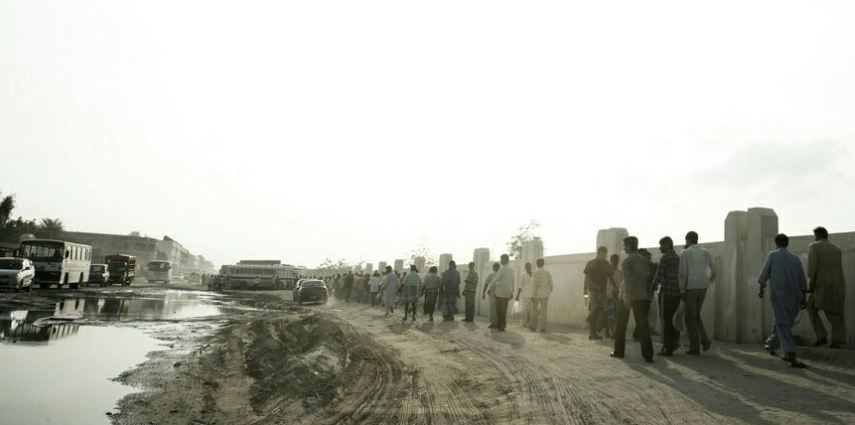Qatar remains under pressure for failing to take urgent and decisive action to prevent death, injury and forced labour affecting thousands of people travelling to the country to work on the infrastructure crucial to deliver the 2022 World Cup.
After years of campaigning by trade unions and other human rights organisations, over the winter Qatar brought in a new labour law which it claimed would abolish the restrictive kafala law – kafala, or sponsorship, is the system blamed for the appalling lack of rights enjoyed by migrant workers in the country, as it gave their bosses so much power over them that it was ownership in all but name.
Sadly, so far the new law appears to do little to protect workers.
Qatar fails first test
Amnesty International denounced the new law as doing nothing more that “scratch the surface” of the country’s labour problems. The ITUC called them “new labels on old laws”. At the heart of the problems lay the fact that employers could still prevent workers changing jobs for up to five years, and that it still gave them the power to block their employees’ departure from Qatar.
The slow-moving but authoritative International Labour Organisation, the UN agency dedicated to setting international labour standards and reviewing countries’ efforts to implement them, were equally unimpressed. Having given Qatar until this March to take serious steps to eliminate the forced labour made possible by kafala, its only concession to Law 21 was to give the Qataris more time to prove themselves. In short, the ILO is not yet satisfied that Qatar has done what it promised.
Focus on the Few
The best news of recent months was that the international construction union, BWI, had negotiated access to official world cup projects to assess health and safety, as well as judging the effectiveness of worker committees set up by Qatar to give workers on these projects the opportunity to raise concerns.
Meanwhile, an independent consultancy employed by Qatar World Cup “supreme committee” found some progress on these projects but also a raft of abuses that right required urgent attention, with workers on 18-hour days and others working five months without a single day off. This is despite the fact that world cup projects are supposed to be governed by a much higher standard of labour conditions (the workers’ welfare standard) than general construction in Qatar.
Although Impactt’s investigation and advice on fixing problems will hopefully mean the issues are addressed, it is sobering to note that the deal with the BWI and the Impactt monitoring cover less than 1% of all foreign workers in Qatar, hundreds of thousands of whom are building projects vital for the world cup.
Where is FIFA?
Meanwhile FIFA, who sparked this crisis when they neglected to consider basic human rights when awarding the 2022 World Cup to Qatar, convened its independent Human Rights Advisory Board for the first time in March, and included detailed discussions on the potential for human rights clauses in the bidding process for the 2026 World Cup. In a bland and carefully worded statement, the committee notes that it was “essential to address the many critical issues that need further attention and effort,” while also welcoming “examples of positive action that FIFA is taking.”
FIFA have their annual Congress coming up in May, with new opportunities to press them over what they are doing to stop the human rights disaster for the 2022 tournament.

